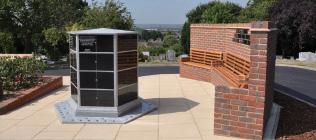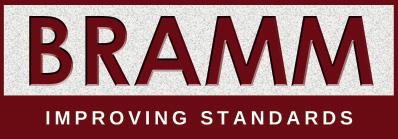
10 minute read
Keep calm and wash your hands
In March, Coronavirus changed the way funerals were delivered, not only in the UK, but all over the world. Initial PHE modelling of 500,000 additional deaths, projected the potential for huge operational challenges for the whole funeral industry.
Merseyside Resilience Forum
Advertisement
Merseyside Resilience Forum (MRF) began its structured response to the pandemic, and we began our journey with the establishment of a Death Management Cell (DMC) to manage the impact of the projected increase in deaths. The cell was made up of various response partners from Merseyside Fire and Rescue, Merseyside Police, Local Authorities, Funeral Directors, Armed Forces, NHS and PHE.
The aim of the Death Management Cell was to support the Merseyside Resilience Forum and its terms of reference in order to cope with the impacts of the COVID-19 Pandemic. The Cell will seek to provide support when normal operational procedures fail.
Some of the partners were not fully familiar with the death to funeral process so we broke down the key components of the route from death to final repose. Whilst I recognise this will not be the same in all regions and there will be factors which influence this such as cultural requirements, Merseyside’s generic ‘mortality pathway’ is shown in the flow chart on the next page.
We used the flow chart to analyse our current provision and identify potential areas of stress or failure, this quickly identified key issues such as: • We didn’t have enough mortuary capacity for projected death rates. • We didn’t know the capacity of the funeral directors in the area. • The current time slots available for burial and cremation were not sufficient for the projected death rate. • The potential loss of 20% of a specialised workforce due to the virus.
In order to keep the DMC effective the member numbers were limited, and an additional cemeteries and crematorium and funeral director’s cell was formed to ensure the effective communication to and from the DMC. We also decided that this should be a Merseyside response and welcomed our colleagues from Greenacres Rainford into the group.
Nationally there were various approaches to similar shortfalls and pressures which saw developments of huge standalone mortuary facilities or additional mortuary capacity at hospitals to ease the pressure on funeral directors and burial and cremation providers. In our initial analysis we had plans to develop a large mortuary facility however this was discounted as the pressure on the mortuaries eased after Easter.
Additional temporary mortuary storage for some of our hospital sites were awaiting delivery from the Cabinet Office but would not be operational until April or early May. The death rate increased rapidly as we approached the peak of the pandemic during the first week in April, and mortuaries were rapidly reaching capacity.
The Portakabin systems arriving from Cabinet Office were not going to meet our urgent need and the availability of additional storage systems from other suppliers was limited. Following a few long days and numerous telephone calls and emails, we were lucky enough to procure some temporary storage, however, this was still not going to be installed until after the Easter break.
The Easter Bank Holiday was around the corner, and the closure of facilities would only compound the issue, therefore urgent action was required.
When we looked at how we could ease the pressures on mortuary storage, by improving transition to the next stage of the process, we felt this would be the easiest and most cost effective way forward, we called this the mortality pathway.
Short term use of some of the MRF Disaster Victim Identification (DVI) Nutwell emergency fridge systems (pictured below) provided some important capacity over the Easter break, however this had still not given us the capacity we needed, we needed the help of our Funeral Directors to get through Easter and maintain the mortality pathway.
Funeral Directors
The next stage of the mortality pathway was to move deceased for the mortuaries to the Funeral Directors as quickly as possible, to ensure that mortuary space was retained. It was important that all deceased released for burial and cremation were collected by the funeral director promptly, mortuary teams were already busy with the increase in deaths therefore needed support.
Police colleagues in the DMC stepped forward to support the mortuary teams, they quickly implemented a 7 day contact point for the mortuaries and funeral directors. The officers contacted FDs on a daily basis advising them of deceased which had been released and feeding back to mortuary teams when the FDs would be taking the deceased into their care. The funeral directors reacted well to this unusual contact method, collecting deceased promptly and freeing up essential capacity in the mortuaries over the Easter Bank Holiday period. We were conscious that funeral directors also had a limited storage capacity, therefore, it was important that the next phase of the pathway offered the opportunity to book and deliver funeral services in a timely manner.
Burials and Cremations
With limited mortuaries and funeral directors reaching capacity it was essential that funeral time slots were available to maintain
Death Management Process
Death in Hospital Doctors speak to families to get a Funeral Director if possible

Death in Community Death in Care Home
Cause for suspicion Cause for suspicion
Coroner
Dr may refer to Coroner
Open investigation, body to public mortuary
Doctor (Completes MCCD)

No enquiry, MCCD signed MCCD sent digitally to Registrar amily makes application to Registra
Registrar
Body to mortuary Notify Mortuary when Registration complete
Mortuary arranges appointment for family
Public Mortuary NHS Mortuary

Registration copy sent to FD & LA
Refer to Public Health Funeral Contact FDs when Green is complete Release to FD when Registered
Release from Coroner (Form 6) If no FD appointed, store with partner FD
Public Health Funeral Funeral Directors

Transfer to appointed FD Funeral Directors Additional Storage
Contract with FD to deliver service Book Funeral
Cremation & Burial
Speak to family and arrange funeral Carry out PHF under Section 46 of PH Act

Direct Cremation
the mortality pathway. I wrote to all burial and cremation providers in Merseyside to ensure as a group, we offered the best service to the funeral directors and the bereaved of Merseyside.
We introduced a range of amendments to increase the time slots available, including; reduced service times, extending the working day, Saturday and Sunday time slots, extra cover for faith funerals and Bank Holiday services. Timeslots for Merseyside quickly increased by over 200 and this was also aided by most of the providers opening on bank holidays if required. Weekly consultation with funeral directors ensured that we added resource where it was needed.
We managed to maintain the mortality pathway at the peak of the pandemic, keeping the waiting times down to a maximum of 3 weeks. Weekend opening was not used to its capacity which would have aided the waiting times but this may have not been a bad thing as it gave time for staff to carry out maintenance work and take some time off. We continued to offer these additional time slots even when the extra storage capacity was commissioned in the hospital mortuaries as we felt it was more important to keep the waiting time at a reasonable level.
Government Guidance and Legislation
I'm sure that you will agree, Government guidance has been challenging to say the least, the lack of accurate modelling at the beginning of the pandemic gave rise to a wide range of responses and tactics. As we hit the peak of the pandemic communications from Government gave a confused message to the bereaved with restrictions varying from 20 mourners, to no mourners allowed at all in some areas. Social distancing had a huge impact on funeral provision, from the registration of the death, funeral directors services, face to face meetings, completion of documentation, and the restrictions on mourners attending the service.
Operationally the guidance presented challenges in all areas of the process, safely handling the deceased for funeral directors and mortuary staff, the cemetery and crematoria staff managing services, the office staff receiving paperwork, shortage of PPE, coffins and body bags, additional cleaning and provision of hand sanitiser.
Reporting
I think we will agree that the constant demand for data was a frustration to us all. Several agencies asking for slightly different data or reports were very time consuming at the height of the pandemic. Resilience forums were asked to gather data from funeral directors, this proved to be and still is a challenge nationwide. When asked what number of refrigerated and unrefrigerated storage they had, one FD replied ‘sufficient’!! I hope in the future that the statisticians engage with the industry so that we have a better understanding of why they are using the requested format for collecting data, and the industry can advise of how and when during a working day, week or month that data will be available or change.
Private/Local Authority Partnership
At the peak of the response St Helens crematorium was fully booked for up to 3 to 4 weeks despite opening extra times, opening at weekends and bank holidays. To try and reduce this waiting time in the St Helen’s area, St Helen’s Council and Greenacres Rainford formed a partnership where St Helen’s Council guided funeral directors and families to Greenacres when they were fully booked. Greenacres tends to be considered by funeral directors as a burial facility, however, the have a superb new chapel in beautiful natural landscape where they can provide a cremation service. This partnership has been very successful and has expanded the availability of cremation services not only in St Helen’s but in the whole Merseyside area. When the cremation service has taken place at the Rainford chapel the coffin is sensitively transported by Greenacres team to a local crematorium for cremation. The death management cell fully supported this partnership as it increased the available timeslots for the area at the height of the pandemic, it also offered the bereaved and funeral directors an alternative option.
Recovery
First of all let’s all take a breath, step back and celebrate a job well done in unprecedented circumstances, you didn’t think I wouldn’t shoehorn in the ‘U’ word somewhere did you? Look back and reflect, what went well, what didn’t go so well, what delayed us delivering services, and what extra support would have been useful. What will the new norm look like? Well, who knows? And will it look the same for all regions of the UK going forward? Definitely not.
Merseyside Bereavement Team has evolved from the Cemeteries and Crematoria group of the DMC, we have all agreed as managers to continue our group working together to develop and improve bereavement services for the people of Merseyside. We are concentrating on Coronavirus response for the time being working together easing out of Lockdown, implementing Track and Trace, and the introduction of suspended services such as burial of ashes. We are also looking longer term to preparations for the potential impact of a second wave, the annual impact of winter flu and making sure we are all fit and well following the past 16 weeks.
We are also looking at how social distancing may have changed the way we engage with the bereaved and user groups. Do we want to continue to receive electronic applications? Should the ‘greens’ be sent directly to the burial or cremation authority? What is the real value of Zoom, MS Teams or Skype in a funeral situation and where does social media fit in?
How do we manage people’s expectations moving forward? Is our customer relationship process fit for purpose, and how do we engage with the customer effectively? Were they able to access our service during the pandemic and are communications delivering a consistent message to the bereaved? How agile is our customer service? Can they access information electronically? Can they book, pay and submit applications and orders electronically?
In the future we intend to carry out joint procurement for supplies and services which we all use. We plan to review all our memorial masons licensing schemes and have a Merseyside approach to make this easier for masons in the area. We also plan to have a range of generic Merseyside bereavement policies and processes which will offer generic similarities to service delivery with specific additions dependent on the site.
Alan Sheldon
Bereavement Service Manager, Liverpool City Council









